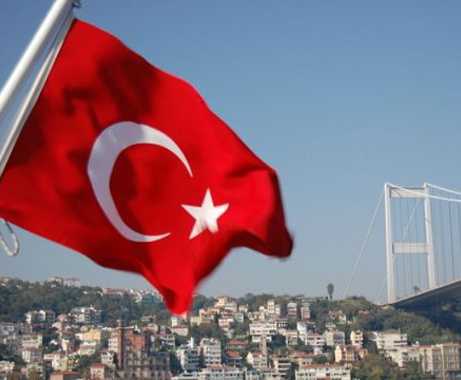By Gareth Jenkins
Tuesday, July 8, 2008 Published by jamestown Foundation
The idea of the D-8 was first discussed in October 1996 by the then Turkish Prime Minister Necmettin Erbakan, the chairman of the Islamist Welfare Party (RP), who was eager to create a Muslim alternative to the EU and what was then the G-7. The organization was formally established on June 15, 1997, in Istanbul. The eight member countries that give the organization its name are Bangladesh, Egypt, Indonesia, Iran, Malaysia, Nigeria, Pakistan and Turkey.
After Erbakan and the RP had been forced from office in Turkey by a campaign of pressure coordinated by the staunchly secularist Turkish military, subsequent Turkish governments paid little attention to the D-8, although they were also reluctant to withdraw from the organization. Despite its name, the defining characteristic of the D-8 has always been religion rather than the relative level of development of the member states’ economies.
Since first taking office in November 2002, Turkey’s ruling Justice and Development Party (AKP) has sought to strengthen the country’s relations with predominantly Muslim countries in fulfillment of what the party’s leadership regards as Turkey’s natural role as one of the leaders of the Islamic world. It has intensified contacts with other members of the Organization of Islamic Conference (OIC) and lobbied vigorously to ensure that, in January 2005, Ekmeleddin Ihsanoglu became the first Turk ever to serve as Secretary General of the organization, a position he still holds.
The chairmanship of the D-8 is held for two years on a rotating basis by one of its members. The Foreign Ministers’ Council Meeting preceded the meeting of the biennial D-8 Summit, which opened in Kuala Lumpur on July 7 and at which the chairmanship of the D-8 was transferred from Indonesia to Malaysia (D-8 official website, www.developing8.org). The summit is expected to approve the decision to base the organization’s permanent secretariat in Istanbul and to discuss the implementation of a Preferential Tariff Agreement (PTA) on selected goods traded among member countries. Although all eight members have agreed to the PTA in principle, only two, Malaysia and Iran, have ratified it to date and it needs four ratifications before it can come into force (D-8 official website, www.developing8.org).
The framework for the D-8 temporary secretariat was agreed upon at the previous D-8 Summit in Bali, Indonesia, in May 2006. The current secretary general is Dipo Alam from Indonesia. Speaking in Kuala Lumpur, Babacan announced that Alam would remain in office for another four years following the upgrading of the temporary secretariat in Istanbul to permanent status.
“After that, the member states will choose a secretary general for a four-year term in alphabetical order. According to this system, the next secretary will be chosen by Iran, then by Nigeria,” said Babacan (Anadolu Ajansi, July 6).
Babacan also predicted that the subsequent summit meeting would finalize a proposed visa agreement to facilitate closer economic ties among member states.
“The only state not to have signed the treaty regarding visas was Malaysia but it has agreed to sign the document during this meeting,” said Babacan. “Thus the treaty allowing businessmen from the eight states to meet and visit each other easily is now complete” (Anadolu Ajansi, July 6).
On July 3 a D-8 Business Forum was held in Kuala Lumpur to discuss biotechnology, renewable energy and the development and regulation of the halal industry, which ensures that activities, particularly the production and processing of food, comply with Islamic precepts.
Alam admitted, however, that such meetings had so far failed to have a significant impact on economic relations among D-8 member states. “The total trade of D-8 nations to the world reached $1 trillion last year, while among member states was only $60 billion. This accounts for only five percent of our trade to the world,” he said. “Our combined population is 930 million, so the market is there” (D-8 official website, www.developing8.org).
However, whatever the Turkish government’s religious reflexes, the simple reality is that for the foreseeable future, the D-8 cannot represent a viable alternative, or even a substantial supplement, to its trade with the West, particularly with the EU, which currently accounts for around half of all of the country’s foreign trade. Perhaps more importantly, Turkey’s 1995 Customs Union agreement with the EU requires Turkey to ensure that any tariff agreements with third countries are in harmony with those of the EU.
Nevertheless, Babacan is likely to regard ensuring that the D-8 secretariat is based in Istanbul as a personal coup. Since taking over from Abdullah Gul as Turkish Foreign Minister in August 2007, Babacan has appeared out of his depth and, particularly in terms of Turkey’s stalled EU accession process, frequently invisible. He has often been mocked by his political opponents as having ambitions that outstrip his ability. They have also noted that whenever a particularly important foreign policy issue is involved, Prime Minister Recep Tayyip Erdogan ensures that he handles it himself rather than entrusting it to Babacan. In this context, any success that Babacan can claim, however minor, is likely to be welcome, particularly as the leading members of the ruling Justice and Development Party (AKP) begin to position themselves for the inevitable changes in cabinet posts if, as appears likely, the party is closed in late summer or early fall.


Leave a Reply